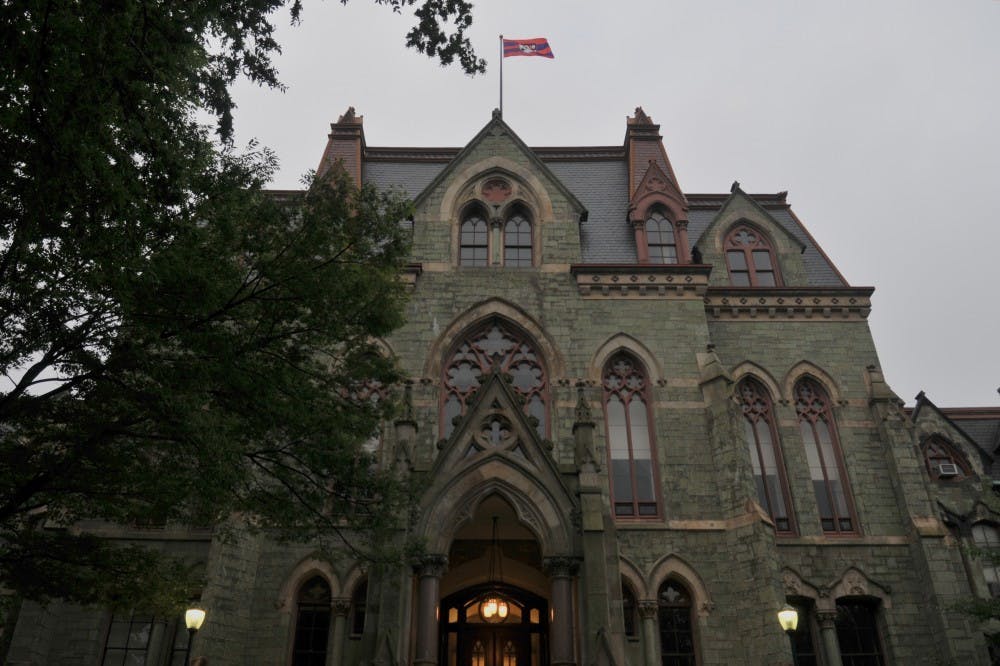
The University will now proactively notify faculty when an undergraduate student dies, Penn officials said Monday morning. The deans of each undergraduate school had previously been able to choose whether or not to inform their constituent faculty members, leaving swaths of faculty uninformed of student deaths.
Around 1:10 p.m. on Monday, Vice Provost for University Life Valarie Swain-Cade McCoullum informed the undergraduate student body of the death of Henry Rogers, who was a Wharton senior. The Daily Pennsylvanian confirmed on Tuesday that faculty in the Wharton School, the College of Arts and Sciences, the School of Engineering and Applied Science and the School of Nursing all received notifications of Rogers' death on Monday afternoon.
Spokesperson for the Office of the Vice Provost for University Life Monica Yant-Kinney wrote in an email that student advising staff would be notified along with undergraduate faculty.
In recent years, Penn has begun standardizing and broadening its policy for notifying members of the University community when a student dies. Prior to September 2016, the University drew criticism for an inconsistent process that occasionally gave some students and faculty more complete information than others.
When Olivia Kong, who had been a Wharton junior, died by suicide in April 2016, Penn President Amy Gutmann and former Provost Vincent Price sent an email to all undergraduates that did not name Kong, even though an email sent by Wharton officials to Wharton's community named her and inaccurately referred to her death as an "accident."
Last September, Penn announced a codified policy for notifying University affiliates when a student dies. If the student is an undergraduate, Cade will email the entire undergraduate student body. When a graduate or professional student dies, members of the student's home school and editors of The Daily Pennsylvanian will be notified directly.
"Any notifications in the past have been episodic,” Cade told the DP at the time.
Penn administrators have tentatively voiced support in the past for a more comprehensive notification system for faculty. During a recent interview with the DP, University spokesperson Stephen MacCarthy indicated that deans would be required to inform their school communities in a more timely, consistent fashion.
"It was originally left to the discretion of the dean … so now, we’re trying to have a discussion about how we modify that a little bit," MacCarthy said.
After Nicholas Moya, formerly a College senior, died by suicide on Aug. 31, only certain faculty members in the College were notified. Uninformed students affected by the death of one of their peers may have been put in the uncomfortable position of personally informing their professors.
It is still unclear whether Penn plans to notify a broader contingent of the University community when a graduate student dies.
"Part of the problem," MacCarthy said, "[is] should the [Perelman School of Medicine] be sending something out when it’s somebody over in the College [who has died]?"
In an interview last week, Provost Wendell Pritchett told the DP it was "a decision by the dean of how quickly" to inform their school communities.
CAMPUS RESOURCES
The HELP Line: 215-898-HELP
Counseling and Psychological Services: 215-898-7021 (active 24/7)
Student Health Service: 215-746-3535
Wellness Resources
Office of the Vice Provost for University Life: 215-898-6081
University Chaplain’s Office: 215-898-8456
Reach-A-Peer Helpline
- 215-573-2727 (every day from 9 p.m. to 1 a.m.)
- 215-515-7332 (texting service available 24/7)
Penn Benjamins (in-person peer counseling)
- Su, M, T 8-11 p.m. Harnwell Library First Floor
- W, Tr 8-11 p.m. Houston Hall Chaplains Office
The Daily Pennsylvanian is an independent, student-run newspaper. Please consider making a donation to support the coverage that shapes the University. Your generosity ensures a future of strong journalism at Penn.
Donate







